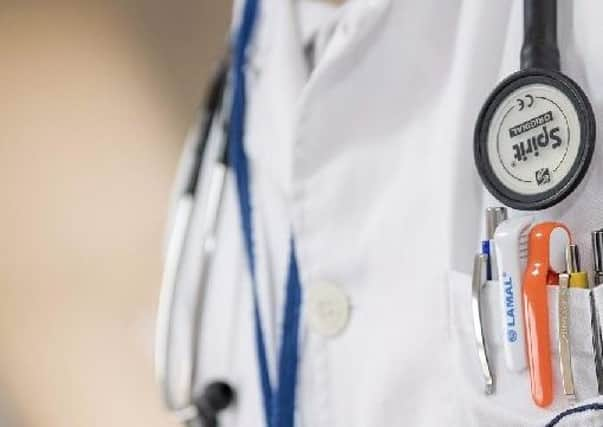Almost a third with cancer did not see their GP


In the most comprehensive study to date, 71 per cent of all patients diagnosed in A&E had seen their GP at least once with symptoms that turned out to be cancer.
Of those who saw their GP with symptoms, 41 per cent had sought help three or more times; 59 per cent had seen their GP once or twice. Some had difficult-to-spot cancers, such as lung cancer or multiple myeloma, and tended to be younger or female.
Advertisement
Hide AdAdvertisement
Hide AdBut the group also included people with common cancers. An analysis of data from 2010 of 4,637 people diagnosed in A&E found 31 per cent of breast cancer patients visited their GP three or more times, bowel cancer (41 per cent) and prostate cancer (37 per cent).
In the study, published in the British Journal of General Practice, the authors, including from University College London (UCL), Cambridge University and Public Health England, found those patients who had never been to their GP tended to be older, male and living in the most deprived regions of England.
Meanwhile, A&E patients diagnosed with common cancers, such as breast cancer, who had visited their GP three times or more, may be presenting with atypical symptoms.
Dr Georgios Lyratzopoulos, a lead researcher at UCL, said: “These findings tell us that some patients diagnosed as an emergency might not be acting on ‘red flag’ symptoms which could have prompted them to visit their GP.
Advertisement
Hide AdAdvertisement
Hide Ad“There’s also a host of other factors that may be at play. For example, many elderly patients may find it difficult to get to the surgery or have other conditions which would prevent them from seeking an appointment, such as dementia.
“This highlights the need to explore all the reasons why cancers are diagnosed late, including what happens outside GP surgeries. It also shows that late diagnosis is more complex than it’s often presented to be.”
Dr Julie Sharp, head of health information at Cancer Research UK, added: “We need to continue to increase awareness of cancer signs and symptoms and help break down the barriers preventing people from seeing their GP earlier, whilst GPs need better access to the right tests and referral routes if we want to see this number reduced.”
Judith Brodie, acting chief executive of Beating Bowel Cancer, said: “It’s concerning that 41 per cent of bowel cancer patients who are diagnosed as emergencies had previously sought help from their GP three or more times.
Advertisement
Hide AdAdvertisement
Hide Ad“A bowel cancer patient’s chance of being successfully treated drops dramatically if they are not diagnosed until a late stage so more must be done to ensure that the public is aware of the symptoms and how important it is to get them checked out as soon as possible.”
It comes after 24 hospitals in the North of England were found to not be meeting NHS standards for less than one per cent of patients waiting more than six weeks for diagnostic tests.
Latest NHS England figures show that at Mid Yorkshire Hospitals NHS Trust in February, as many as 25 per cent of patients had to wait more than six weeks for a flexible sigmoidoscopy, and 13 per cent for a colonoscopy.